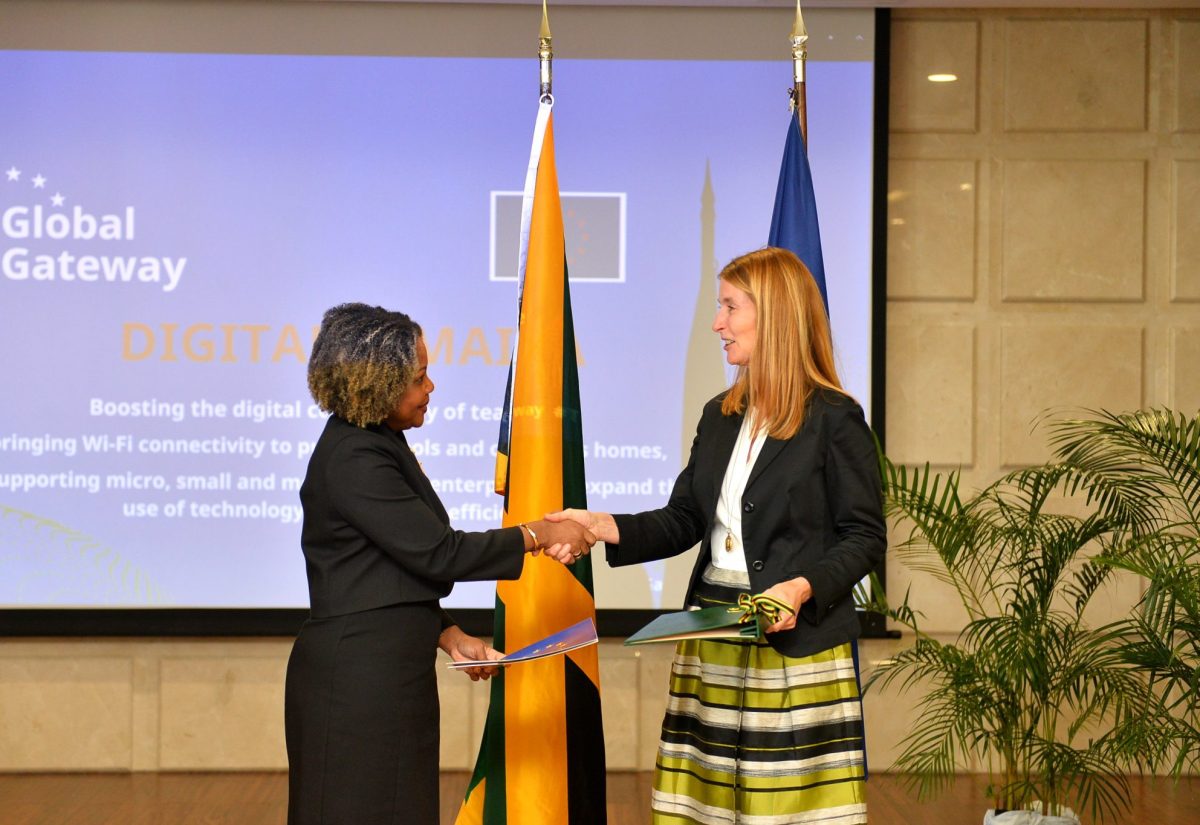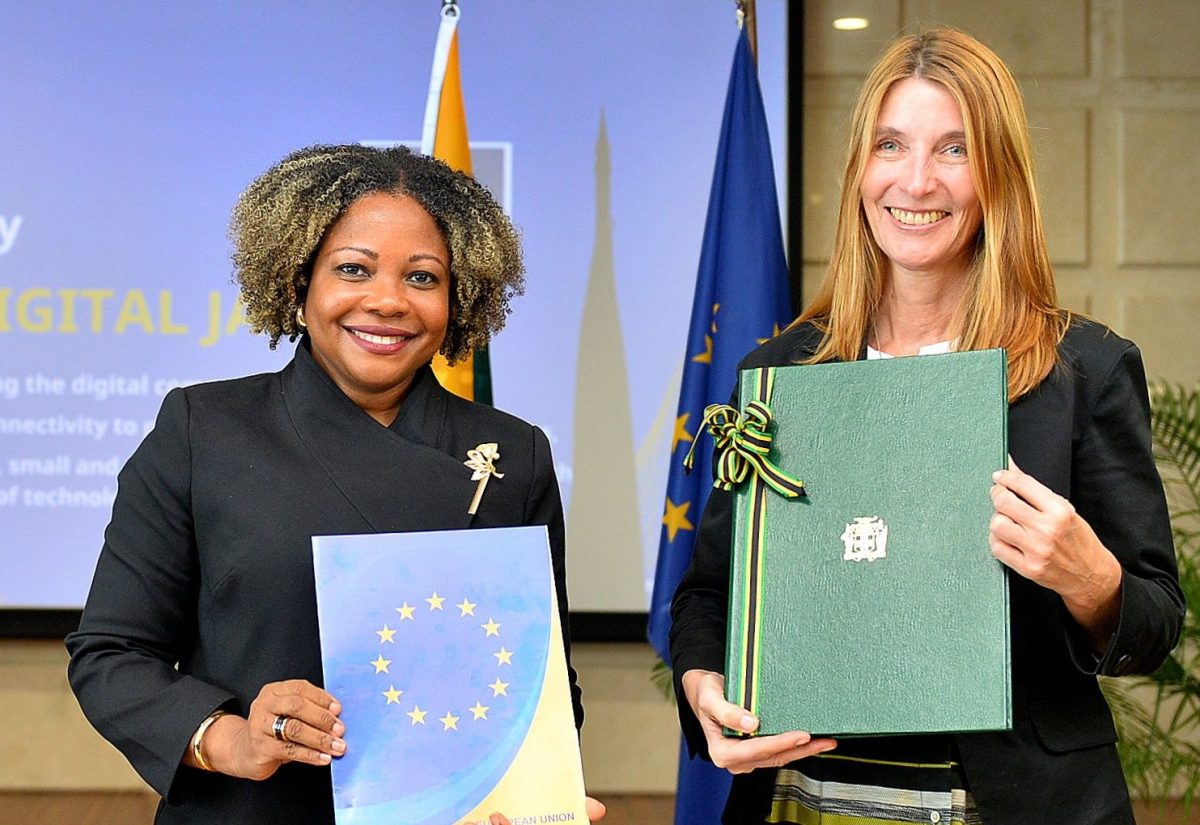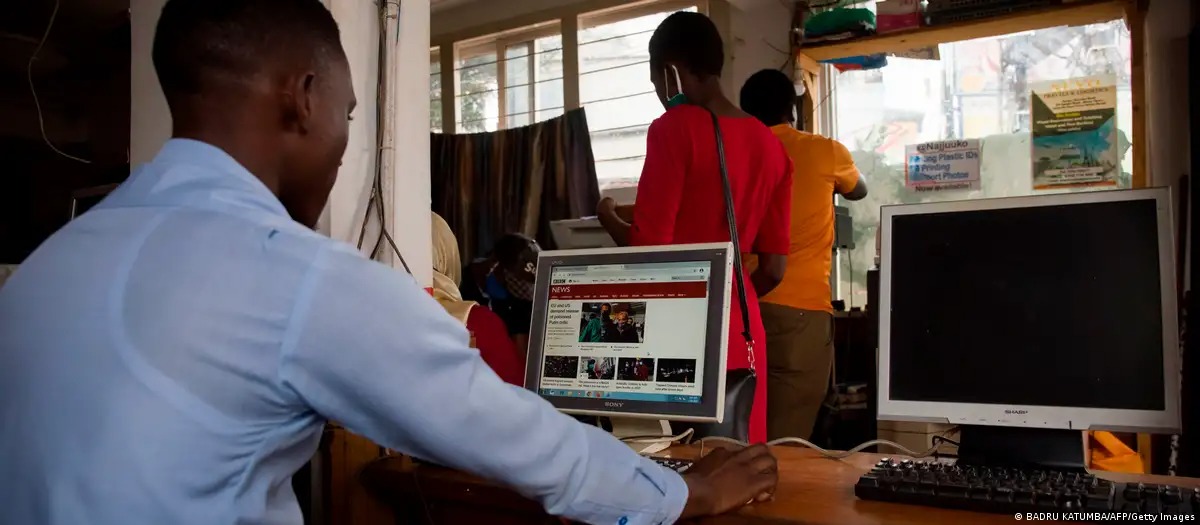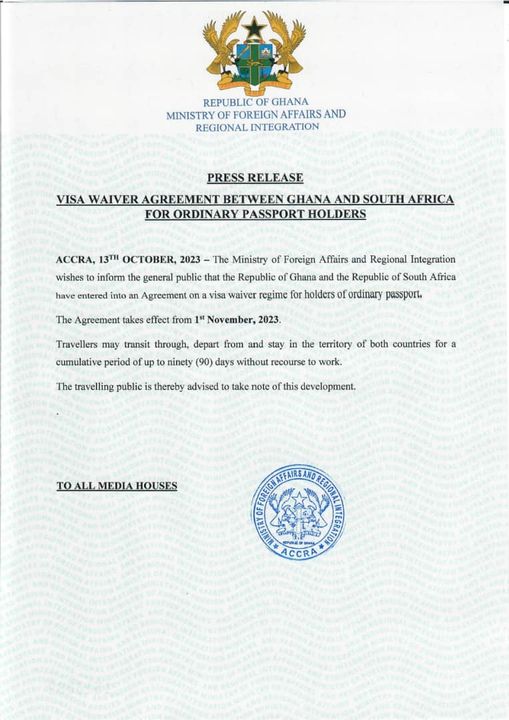On October 10, the Government of Jamaica, in collaboration with the European Union (EU), unveiled the Digital Jamaica program, a €9.5 million initiative aimed at expanding access to and utilisation of information and communications technologies (ICT) to facilitate the country’s transition to a digital economy and society.
Implemented by the Office of the Prime Minister (OPM), the Ministry of Education and Youth, and the Ministry of Industry, Investment and Commerce, Digital Jamaica aims to connect Jamaicans through high-speed internet, establish Wi-Fi networks in schools, and provide digital skills training for students and teachers. The program will also extend support to micro, small, and medium-sized enterprises (MSMEs) in adopting technological solutions.
By leveraging digital tools, the program seeks to bridge the digital divide, equip young people with essential digital skills, and foster innovation and entrepreneurship. Senator Dr. the Hon. Dana Morris Dixon, Minister without Portfolio in the OPM with oversight for Skills and Digital Transformation, praised Digital Jamaica as a catalyst for change and development. She emphasised that the program’s objective is not only to revolutionise Jamaica’s technological landscape but also to empower citizens by improving access to information, promoting digital literacy, and stimulating innovation and entrepreneurship.

Senator Morris Dixon highlighted the advantages of a digitally skilled population, which includes enhanced innovation, increased competitiveness on the global stage, and the attraction of more investors. She emphasised that digital empowerment is not a luxury but a necessity that bridges gaps and fosters inclusivity and equality.
Expressing gratitude to the EU for funding the initiative, Senator Morris Dixon characterised the program as a testament to the enduring partnership and collaborative spirit between nations.
Helena Konig, Deputy Secretary General for Economic and Global Affairs at the EU, emphasised that Digital Jamaica is the first concrete, grant-funded multi-sector program of support for Jamaica’s digital transformation agenda following the COVID-19 pandemic. The program will collaborate with the Ministry of Education and Youth to integrate Jamaica’s National ICT Competency Framework for Teachers into the curricula of all publicly funded teacher training institutions. This strategic focus on education is crucial for Jamaica’s goal of becoming a knowledge-based society with a digitally competent workforce.
Digital Jamaica will also facilitate collaboration between the OPM and the Ministry of Education and Youth to provide Wide Area Network (WAN) and Wi-Fi connectivity to over 1000 public schools, including children’s homes, reducing social vulnerability to the digital divide, especially among students in unserved and underserved areas.
Sancia Bennett Templer, Permanent Secretary in the Ministry of Industry, Investment and Commerce, disclosed that €1.7 million of the program’s budget will be allocated to the Jamaica Business Development Corporation (JBDC) to support the active participation of MSMEs in the digital transition. Given that MSMEs account for 60 to 70 percent of jobs in Jamaica, involving them in digital transitioning programs presents significant opportunities for widespread adoption of digital technologies, improving transactions, efficient goods delivery, access to financial services, and customer engagement.
To facilitate MSMEs’ digital transformation, the Ministry will provide training for the JBDC and business support services providers, enabling them to offer digital transformation training to MSMEs across the island.
Hon. Fayval Williams, Minister of Education and Youth, welcomed the Digital Jamaica program, recognising its alignment with the government’s efforts to enable citizens to develop new capabilities, ranging from basic digital literacy to advanced competencies in data science and coding. The program holds potential benefits for in-service teachers, trainee teachers, and aspiring educators, expanding career prospects for students in the technology field.
Digital Jamaica, the first bilateral EU Global Gateway Flagship Program in the Caribbean, aligns with the EU’s Global Gateway strategy, which aims to strengthen digital, energy, and transport sectors, as well as health, education, and research systems worldwide.







